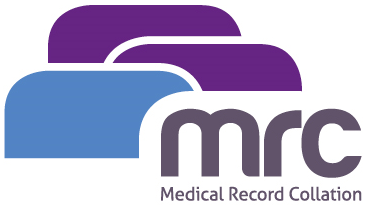In personal injury cases, the ability to establish a clear and comprehensive timeline of medical events is crucial. Accurate and organised medical record chronology serves as a powerful tool for solicitors and their clients in building a compelling case. As a company specialising in medical record chronology, we at MRC understand the significance of this process and its impact on personal injury litigation. In this blog post, we will delve into the importance of medical record chronology and explore how it can contribute to the success of personal injury claims. We will break down the importance of our chronology service when working on personal injury cases.
- Unveiling the Big Picture:
Medical record chronology involves reviewing and organising medical records in a systematic and chronological manner. This process provides a comprehensive overview of the injuries, treatments and progress of the injured party. By creating a detailed timeline, solicitors gain a clear understanding of the medical journey, which allows them to present a more persuasive and accurate account of the events leading to the injury.
- Demonstrating Causation:
In personal injury cases, establishing causation is essential for proving negligence or fault. Medical record chronology plays a vital role in demonstrating the link between the accident or incident and the resulting injuries. By meticulously analysing medical records, solicitors can identify the sequence of events, medical treatments and any pre-existing conditions that may have exacerbated the injuries. This detailed analysis helps build a strong argument to establish causation and holds the responsible party accountable.
- Identifying Gaps and Inconsistencies:
During the process of medical record chronology, any gaps, discrepancies or missing information can be easily identified. Incomplete or inaccurate medical records can significantly weaken a personal injury case. By recognising these gaps, solicitors can take appropriate steps to address them, such as obtaining additional medical records or seeking expert opinions. By presenting a comprehensive and well-documented chronology, solicitors can enhance their client’s credibility and strengthen their case.
- Assessing Treatment Efficacy:
Medical record chronology allows solicitors to assess the effectiveness of the treatment provided to the injured party. By carefully examining the progression of medical interventions, solicitors can determine if the treatment was appropriate, timely and in line with standard medical practices. This evaluation is crucial for determining the extent of the injuries, the potential for recovery and the need for ongoing medical care or rehabilitation. A well-documented chronology can provide valuable evidence to support claims for medical expenses, future care and loss of earning capacity.
- Enhancing Negotiations and Litigation:
A meticulously prepared medical record chronology is an invaluable asset during negotiations and litigation. It helps solicitors present a concise and compelling narrative to insurance companies, opposing counsel, mediators or judges. By providing a comprehensive overview of the injuries, treatments and their impact on the injured party’s life, a well-structured chronology strengthens the solicitor’s argument and increases the chances of a favourable outcome.
The importance of medical record chronology cannot be overstated in personal injury cases. The ability to establish a clear and concise timeline of medical events provides a solid foundation for building a persuasive case. By organising and analysing medical records, solicitors can demonstrate causation, address gaps and inconsistencies, assess treatment efficacy and present a compelling narrative. As a company dedicated to medical record chronology, MRC plays a crucial role in assisting law firms and their clients in navigating the complexities of personal injury litigation. With accurate and organised chronologies, solicitors can achieve a greater level of success in advocating for their client’s rights and obtaining fair compensation for their injuries.
For more information about how our Chronology service can help you, please visit our Chronology page here and visit our Personal Injury page here.
